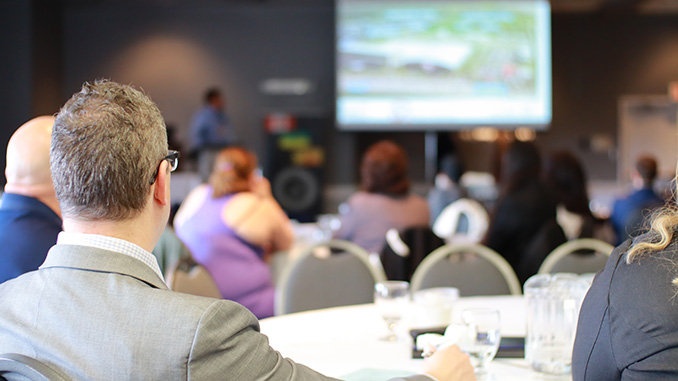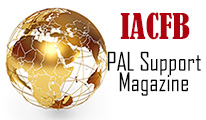
In the business of running your business as a freelance factoring broker where lead generation is a top priority, the decision to participate in face-to-face networking events hosted by your local Chamber of Commerce is not just a choice—it’s a strategic investment. Chambers of Commerce organize a variety of networking events to facilitate connections among local businesses and professionals. The types of networking events can vary depending on the chamber’s size, location, and the preferences of its members. Here are some common types of networking events organized by Chambers of Commerce that make them worth becoming a member:
- Business After Hours Mixers: These informal evening events provide a relaxed atmosphere for members to network after regular business hours. Attendees can socialize, exchange business cards, and make connections in a more casual setting.
- Networking Breakfasts or Luncheons: Chamber-hosted breakfast or lunch events often feature guest speakers, presentations, or panel discussions on relevant business topics. Attendees have the opportunity to network before or after the formal program.
- Industry-Specific Mixers: Chambers may organize networking events tailored to specific industries or sectors. These gatherings allow businesses with common interests or challenges to connect and collaborate.
- Speed Networking Sessions: Modeled after speed dating, speed networking events involve participants rotating through brief one-on-one meetings. These events are designed to maximize connections in a short amount of time.
- Trade Shows and Expos: Chambers may host trade shows or business expos, providing a platform for members to showcase their products or services to a broader audience. These events often attract a diverse range of businesses and potential clients.
- Educational Seminars and Workshops: Many Chambers of Commerce organize educational events focused on industry trends, business strategies, and skill development. These events not only provide valuable insights but also create opportunities for networking.
- New Member Orientations: Chambers often organize events to welcome new members. These orientations may include introductions to chamber programs, services, and networking opportunities, allowing new members to connect with established ones.
- Women in Business Networking: Some chambers host events specifically for women in business, providing a supportive environment for networking, mentorship, and collaboration among female professionals.
- Young Professionals Mixers: Geared towards younger professionals and entrepreneurs, these events aim to connect emerging leaders, foster mentorship, and provide a platform for networking among the next generation of business professionals.
- Chamber Committees and Roundtables: Chambers often have committees or roundtable groups focused on specific areas, such as marketing, government affairs, or community development. Participation in these groups allows members to network while working collaboratively on shared goals.
- Community Events and Sponsorships: Chambers may support or sponsor community events, festivals, or charitable initiatives. Participating in these activities not only contributes to the local community but also provides opportunities for networking.
While online social media platforms offer expansive reach and immediate connections, the personal touch and genuine interactions forged through in-person networking hold a distinct power. In the realm of generating new clients and referrals, the essence of a handshake, a shared conversation, and the warmth of a live exchange can often surpass the impact of a digital connection. Embracing all opportunities for face-to-face networking is not merely a supplementary strategy; it is a strategic imperative for cultivating meaningful relationships that transcend the confines of virtual spaces.
Here’s a few reason why these events offer a potent avenue for factoring brokers for developing leads and cultivating valuable clients:
1. Targeted Local Exposure:
Chamber of Commerce events provide factoring brokers with a concentrated pool of local businesses. This targeted exposure is invaluable for professionals seeking to establish connections within their immediate community. Local businesses in need of financing solutions often turn to trusted local networks, making these events an ideal ground for lead generation.
2. Trust Building in Real Time:
Face-to-face interactions foster trust more effectively than online engagements. Attending Chamber events allows factoring brokers to engage in real-time conversations, showcasing their expertise, and building trust through personal connections. Trust is a cornerstone for any long-lasting client relationship, and these events provide the platform to establish it authentically.
3. Access to Decision Makers:
Chamber of Commerce gatherings attract business owners, executives, and decision-makers. For factoring brokers, having direct access to individuals who hold the key to financial decisions is invaluable. These events offer a unique opportunity to engage with those who have the authority to explore factoring solutions for their businesses.
4. Networking with Industry Peers:
Beyond potential clients, Chamber events provide a forum for networking with industry peers. Building relationships with other professionals in related fields can lead to collaborative opportunities, referrals, and a broader network that enhances overall business development efforts.
5. Educational and Insightful Seminars:
Chamber of Commerce events often include seminars and workshops covering a range of business-related topics. For factoring brokers, these sessions offer a chance to stay informed about industry trends, regulatory changes, and financial strategies. Engaging in such educational opportunities positions brokers as knowledgeable experts and adds value to their interactions with potential clients.
6. Community Recognition and Visibility:
Active participation in Chamber events contributes to community recognition and visibility. When factoring brokers are consistently present at local business gatherings, they become a familiar face within the community. This recognition can lead to organic referrals and word-of-mouth recommendations, bolstering the potential for client development.
7. Facilitating Long-Term Relationships:
Chamber events emphasize relationship building. Developing leads and clients is not just about immediate transactions; it’s about fostering long-term, mutually beneficial relationships. These events provide a conducive environment for factoring brokers to nurture connections over time, contributing to sustained business growth. They offer you a strategic and dynamic platform for lead generation and client development. The local focus, real-time trust-building, access to decision-makers, and the potential for collaborative networking make these events an essential component of a comprehensive business development strategy. The benefits extend beyond immediate client acquisition, laying the groundwork for enduring relationships that drive the long-term success of factoring brokerage endeavors.




